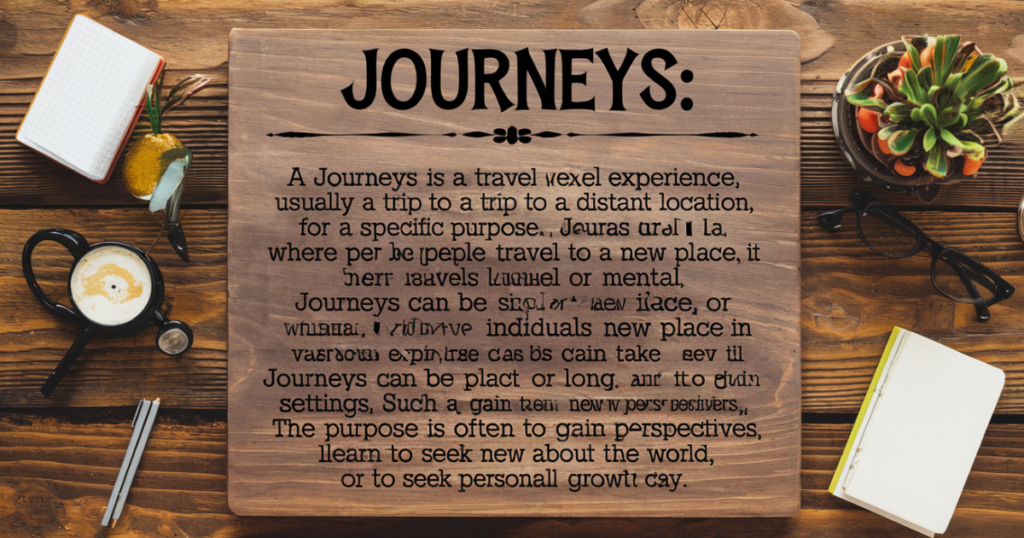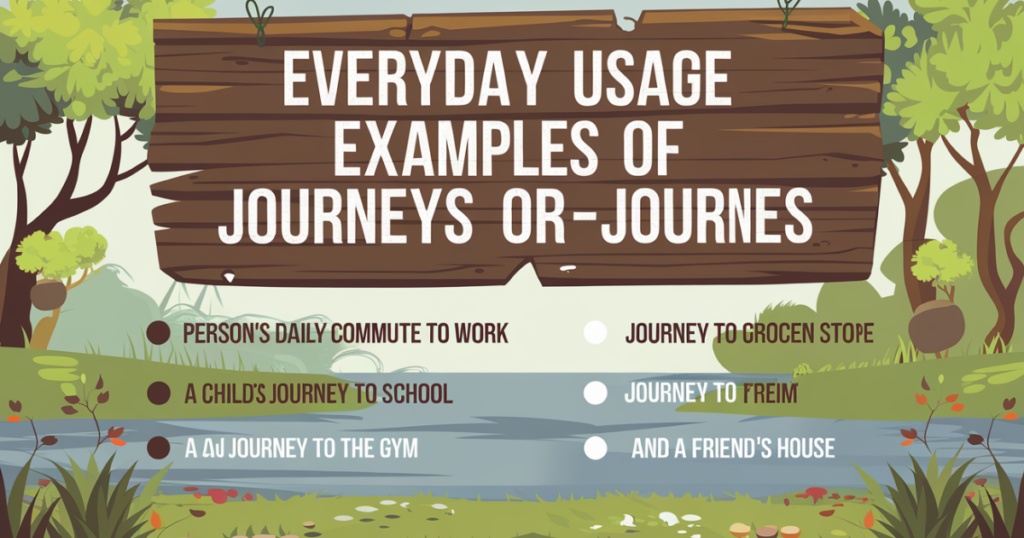When it comes to the plural of “journey,” many people find themselves confused. Is it journeys or journies? While both might look plausible, only one of them is correct in modern English. Understanding the right usage and spelling can help you communicate more clearly, especially in writing.
In this article, we’ll explore the spelling rules behind this word and uncover why “journeys” is the standard plural form. We’ll also provide some examples to help you feel confident using it in any context.
Understanding Journeys And Journies

Journeys: Definition and Usage
“Journeys” is the plural form of “journey,” meaning multiple trips or experiences involving travel from one place to another, either physically, emotionally, or metaphorically. It signifies the process of moving, exploring, or progressing, often with an end goal or discovery.
For Example:
- Her journeys around the world taught her invaluable life lessons.
- The author’s journeys through different genres shaped his unique writing style.
You Like To Read This: Busses Or Buses: Navigating The Plural Of “Bus” Correctly
Journies: Common Misuse
“Journies” is a common spelling error made when trying to write the plural of “journey.” This form doesn’t follow standard English spelling rules, where nouns ending in -y typically become plurals by adding -ies only if preceded by a consonant. Since “journey” ends in a vowel before the -y, the correct plural is “journeys.”
Side-by-Side Comparison
Here’s a side-by-side comparison of “Journeys” and “Journies” to clarify their correct usage and common mistakes:
| Term | Correct Usage | Common Misuse | Explanation | Key Difference |
| Journeys | ✔️ Correct | — | “Journeys” is the correct plural form of “journey.” | Follows the rule for pluralizing nouns ending in -y after a vowel. |
| Journies | — | ❌ Incorrect | “Journies” is incorrect; it doesn’t follow standard rules. | Incorrectly applies the -ies ending to form the plural. |
“Journeys” is the standard plural form, adhering to English spelling conventions, while “journies” is a mistaken form that does not follow the rules for pluralizing nouns ending in -y after a vowel.
Everyday Usage Examples

For “Journeys”
- Their journeys across Europe were filled with unforgettable experiences.
- The scientist’s journeys into remote jungles led to groundbreaking discoveries.
- Throughout their journeys, they met people from diverse cultures and backgrounds.
- Our family’s journeys to the beach every summer are cherished traditions.
- Her spiritual journeys helped her find inner peace and clarity.
- As a travel writer, he documents his journeys around the world for his readers.
- The company offers unique journeys tailored to adventurous travelers.
Exploring the Meaning and Significance of “Journeys”
“Journeys” represents more than just physical trips; it symbolizes personal growth, discovery, and life’s unfolding experiences. From vacations and expeditions to emotional and spiritual paths, each journey contributes uniquely to our understanding of the world and ourselves.
Recognizing this broader meaning adds depth to the term, making it a powerful way to describe the experiences that shape us.
FAQs
Is it correct to say journeys?
Yes, “journeys” is the correct plural form of “journey,” following English rules for nouns ending in -y after a vowel.
What is the difference between journeys and journies?
“Journeys” is the accurate plural of “journey,” while “journies” is a common spelling error that does not adhere to standard English spelling rules.
Why is journeys not spelled journies?
In English, nouns ending in -y after a vowel add -s (not -ies) to become plural, so “journey” becomes “journeys” instead of “journies.”
What are the most common synonyms for journeys?
Common synonyms for “journeys” include “trips,” “expeditions,” “adventures,” “voyages,” and “excursions.”
Conclusion
In conclusion, understanding the correct plural form of “journey” helps avoid a common spelling mistake. The term “journeys” is accurate, while “journies” is incorrect and does not align with English pluralization rules. Remembering this distinction ensures your writing remains clear and precise.
Whether used to describe physical travels, emotional growth, or life adventures, “journeys” captures a sense of movement and exploration. Knowing the correct spelling, along with synonyms, can enhance your language use and expressiveness in any context.

Grammerlytips.com, authored by Jame, offers expert tips and insights on mastering grammar, enhancing writing skills, and boosting communication effectiveness.

